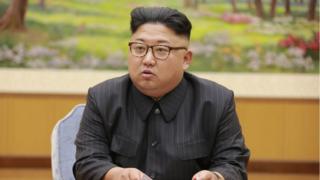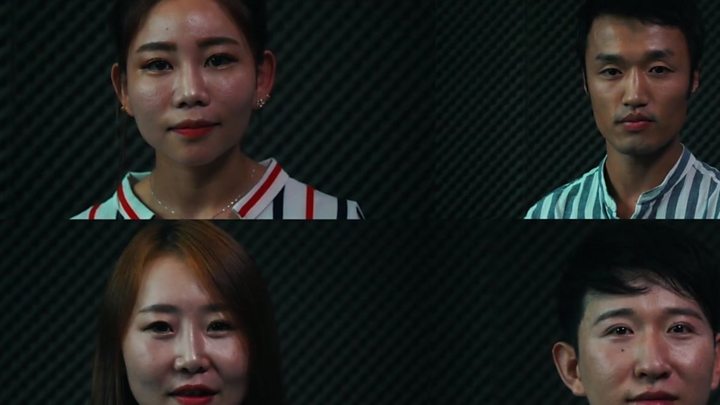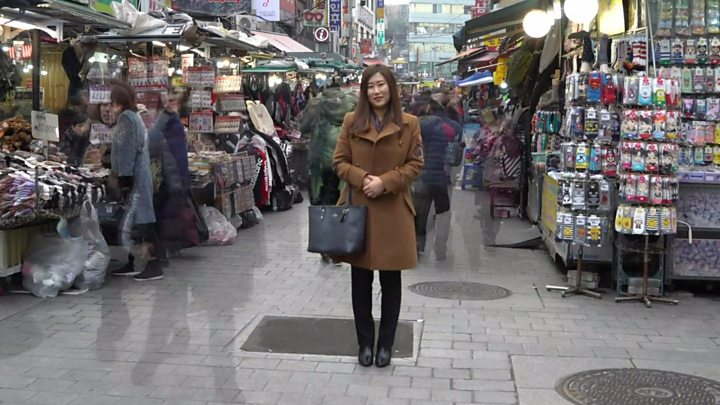
Image copyright
Getty Images
Defectors and rights groups say execution is used to instil public fear in North Korea
A South Korean NGO says it has identified 318 sites in North Korea that have been used by the government to carry out public executions.
The Transitional Justice Working Group interviewed 610 North Korean defectors over four years for its report.
It documented decades of killings, for offences ranging from stealing a cow to watching South Korean TV.
Public executions took place near rivers, fields, markets, schools, and sports grounds, the rights group said.
Crowds of 1,000 or more would gather to watch these executions, the NGO said in its report, “Mapping the fate of the dead”, released on Tuesday.
The report alleges that family members of those sentenced to death, including children, were sometimes forced to watch the event. The bodies and burial locations of those killed were rarely given to their relatives.
The youngest person to witness a public killing was seven years old, according to testimony.
Some public executions also take place inside detention facilities such as prisons and labour camps – where people convicted of political crimes are forced into physical work such as mining and logging.

One defector held in a labour camp in the early 2000s described how 80 inmates were made to watch the killing of three women charged with trying to escape to China.
They said a Ministry of People’s Security officer told the crowd: “This could happen to you.”
The report said executions are “a core method of inciting fear and deterring citizens from engaging in activities deemed undesirable by the regime”.
Firing squads and hanging
The vast majority of executions happen by firing squad, defectors said. This often involves three shooters firing three rounds each into the body of the condemned person.
Some interviewees cited occasions when those carrying out the execution appeared to be drunk.
One said that “this is because killing is a hard thing to do emotionally”.
A smaller number of public hangings was also reported, though the NGO said they appeared to have been scaled back or even halted since 2005.
Ethan Shin, one of the report’s authors, told AFP that “it looks like the number of public executions is on a downward trend”, but that Pyongyang may simply be operating with more secrecy “as it seeks recognition as a normal state”.

High-ranking North Korean officials have been executed in the past. In 2013, the uncle of North Korean leader Kim Jong-un was condemned for treason.
But reports of killings are notoriously hard to verify, and have also turned out to be untrue.
In 2013, popular North Korean singer Hyon Song-wol was alleged to have been publicly executed, with a South Korean newspaper saying she was shot “in a hail of machine gun fire while her orchestra looked on”.
She later reappeared in 2018 as part of a North Korean delegation visiting Seoul ahead of the Winter Olympics.



